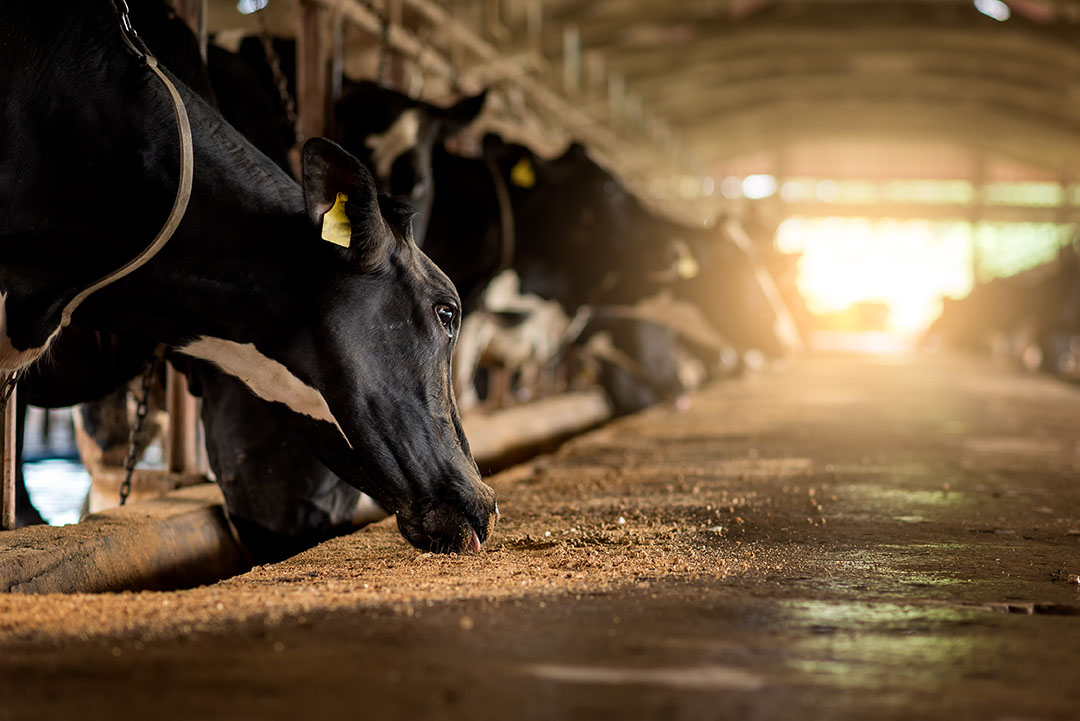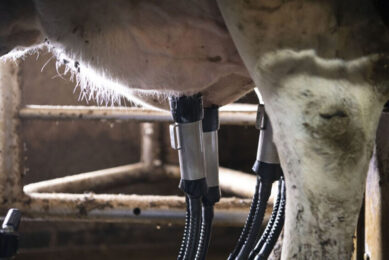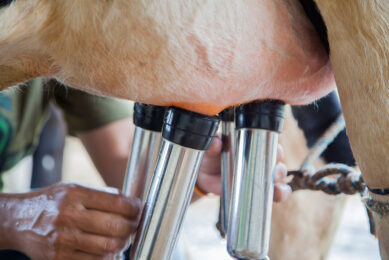Reducing systemic inflammation in dairy cows

Systemic inflammation is a critical issue which dairy farmers must address when managing milking cows through transition, even though it can easily be over-looked in the midst of dealing with other post-calving pressures and diseases.
Dairy cows in transition face high nutritional demands immediately after calving, often creating a state of negative energy balance (NEB) during the time before the impact of high-energy post-calving diets take effect. This can cause cows to struggle in terms of milk production and body condition, with metabolic disease pressures, such as subclinical ketosis, presenting a major health challenge.
NEB and systemic inflammation
At the same time most cows can exhibit systemic inflammation with no clear signs of infection. This inflammation might be triggered partly by the NEB but it is assumed to be related also to the calving stress and associated physiological changes which can often lead to suboptimal immune function and inadequate immune activation.
NEB and systemic inflammation around calving can cause cows to struggle in terms of milk production reproductive performance, body condition, and pressure of infectious diseases. An abnormally increased concentration of Non-Esterified Fatty Acids (NEFA), β-hydroxybutyrate (BHBH) and inflammatory biomarkers as haptoglobin (Hb) in the blood may reflect a status of systemic inflammation with negative consequences for cow health and performance throughout the entire lactation (Figure 1).
Figure 1 – Visual of systemic inflammation in cows.

Systemic inflammation: Main parameters and consequences
Systemic inflammation plays into this high-stress period. While it’s an immune response which is beneficial in recruiting innate immune cells as a defence against bacterial growth, inflammation still comes at a high energy cost to the animal concerned. The issue needs to be addressed, therefore, as an integral part of dairy cow health and performance during transition.
Published research data shows that cows with systemic inflammation require an average of 1kg more glucose during a 12-hour period than cows which are free of inflammation. Such action requires to reduce systemic inflammation immediately after calving and helping to promote faster metabolic adaptation and higher milk production in affected cows.
The challenge for dairy farmers is to deliver essential nutrition to transition cows, quickly and effectively. This is a requirement which researchers at Phileo by Lesaffre have addressed by examining the impact of adding the yeast probiotic, Actisaf Sc 47, to transition diets.
Recent scientific studies have clearly identified the benefits of supplementing the yeast probiotic during transition at a rate of 10g/cow/day, as well as in early lactation at a rate of 5g/cow/day, resulting in reduced systemic inflammation.
Improvement in performance and rumen health
In a first published study, where Actisaf Sc 47 supplementation was at 10g/cow/day), results clearly demonstrated improvements in energy balance and performance, culminating in an average milk production increase of +2 kg/cow/day. Significant lower concentrations of blood Hb and BHB levels in the Actisaf Sc 47 group (Table 1) also reflected a reduction of lipomobilisation processes and systemic inflammation and a lowering of the risk of sub-clinical ketosis.
A second published study, where Actisaf Sc 47 supplementation was at 5g/cow/day, focused on rumen fermentation and serum metabolic profile, with measurements taken from weeks 3 to 19 of lactation. Results showed beneficial effects on rumen health, with rumen lactate levels being significantly reduced. This led to the conclusion that Actisaf Sc 47 helped to reduce acidosis risk in cows fed a basic/rich-concentrate ratio. The study also clearly demonstrated a reduction of lipomobilisation and systemic inflammation during early lactation, with the blood concentration of NEFA and BHB being reduced significantly in the Actisaf Sc 47 group (Table 1). The improvement of ruminal fermentation within the Actisaf Sc 47 group, alongside reduced systemic inflammation, created an increased energy supply for milk production. These results explain why average milk production increased by +1.6 kg/d in the Actisaf Sc 47 group.
Table 1- Effects of yeast probiotic Actisaf Sc 47 on cows’ systemic inflammation and milk production.
Positive impact on energy levels and reproduction performance
Both these studies showed that the yeast probiotic supplement helped to improve energy status and metabolism, thereby increasing the supply of energy for milk production.
In addition, both factors were seen as impacting positively on reproductive performance, as reported in another recent published study, based on a major French analysis, spread over 3 years and involving 14 dairy farms and approximately 2,500 dairy cows. Compared with a control group, cows in this study, which were supplemented with the yeast probiotic during transition, had a significantly higher artificial insemination (AI) success rate – 38% vs 34%; a significantly higher AI success rate from the first insemination – 46% vs 31%; and a significantly lower number of inseminations per pregnancy – 2.7 vs 3.1.
Yeast probiotic reduces the risk of systemic inflammation
This led to the overall conclusion that Actisaf Sc 47, given as a daily supplement to high-yielding dairy cows, helped to reduce the risk of systemic inflammation, mitigating negative energy balance in the process and impacting on physiological parameters during transition and the subsequent lactation, all of which explains the better productive and reproductive performance of supplemented cows.
References available on request
Author: Mohamed Mammeri, PhD, Global Product Manager, Phileo by Lesaffre






